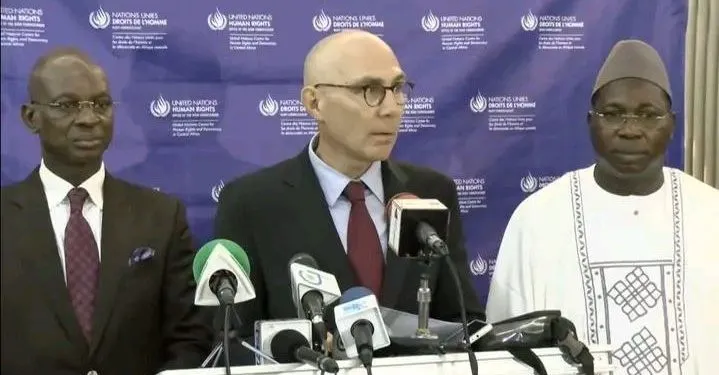The visiting UN High Commissioner for Human Rights, Volker Türk, has urged the Cameroonian Government to engage in dialogue with aggrieved parties to resolve the ongoing armed conflict in the English-speaking regions.
He made this statement during a press conference in Yaoundé on Wednesday, August 7, following a three-day visit to Cameroon, during which he held talks with government officials, opposition political parties, and civil society representatives.
Mr Türk expressed regret that what began as peaceful protests in 2016 has escalated into a severe crisis, impacting the civilian population of the North West and South West regions.
He noted that clashes between separatist groups and security forces, including the military, have resulted in thousands of deaths, the displacement of hundreds of thousands, and more than 700,000 children being denied their right to education.
Describing the accompanying atrocities as unacceptable, Türk noted: “Reports continue to emerge of human rights violations and abuses, including unlawful killings, ill-treatment and torture, kidnappings for ransom, and restrictions on freedom of movement.”
He added: “The imposition of ‘lockdown days‘ by separatist groups, preventing children from going to school, people from accessing their livelihoods, at the risk of being shot.”
Emphasizing the need for an end to the crisis, Türk prescribed dialogue, accountability, and reforms as the way forward.
“No stone should be left unturned in efforts to silence the guns and bring this untenable crisis to an end – through dialogue with those who have grievances and demands, through accountability for the perpetrators of human rights violations and abuses, and through reconciliation measures,” he stated.
PERPETRATORS OF ATROCITIES SHOULD BE BROUGHT TO JUSTICE
The UN human rights commissioner expressed deep concern over the impunity regarding perpetrators of persistent atrocities in the two English-speaking regions.
He called for those responsible to be brought to justice, stating, “The fight against impunity is absolutely key, regardless of the affiliation of the perpetrators, as it will go a long way in building confidence between citizens and the State.”
“Where State security forces have been implicated in violations, it is essential that investigations take place independently, promptly and transparently, and perpetrators are brought to justice, alongside provision of protection for victims and witnesses,” he said adding that, “I was given assurances by the Government in this regard.”
At least 300 people were killed last year due to the crisis, according to the Center for Human Rights and Democracy for Africa, CHRDA. The organization also recorded 100 days were lost to ghost towns imposed by separatists. MMI reported how separatist targeted and killed dozens of civilians during the lockdown periods.
The Cameroon military and the police were also accused of several atrocities, including summary killings, arbitrary arrest, and detention last year.
The UN human rights commissioner urged the government to adopt a victim-centered approach to resolve the protracted crisis and called for the facilitation of humanitarian access to conflict-affected areas.
He also recommended the revision of the 2014 anti-terrorism law in this context.
Volker Türk had provided several recommendations to the government in 2019 for resolving the crisis, but very few have been implemented as the crisis persists.
He announced that an assessment of these recommendations would take place soon.
In addition to the Anglophone Crisis, he also addressed other pressing issues in Cameroon, including restrictions on freedom of expression and association, freedom of assembly, women’s rights, and discrimination.



